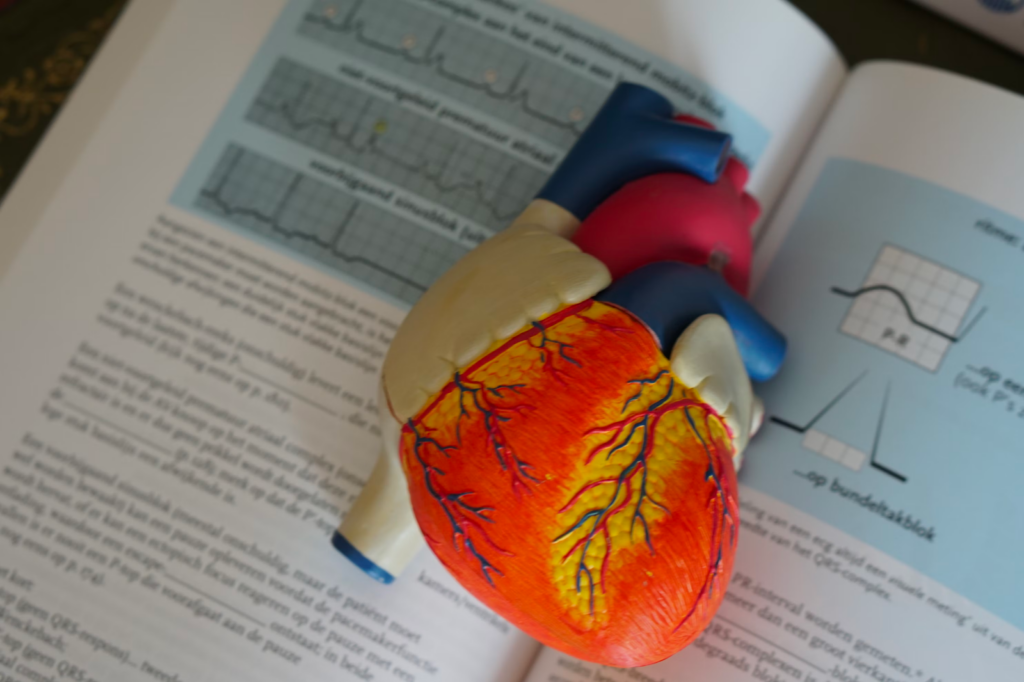Shocking Heart Attack Facts for Kids (2024 Updated)
Have you ever wondered how your heart works?
It’s an amazing organ that pumps blood throughout your body, delivering oxygen and nutrients to your cells. But sometimes, things can go wrong with the heart, leading to a condition called a heart attack.

This article will explore what happens during a heart attack, what causes it, and what you can do to keep your heart healthy.
What is a Heart Attack?

A heart attack, also known as a myocardial infarction, occurs when the blood flow to a part of the heart is blocked.
This blockage is usually caused by a buildup of fatty deposits called plaque in the arteries that supply blood to the heart. When the blood flow is blocked, the affected part of the heart doesn’t get enough oxygen, which can cause damage to the heart muscle.
During a heart attack, the affected part of the heart may not work properly, which can lead to serious health problems. It’s essential to recognize the signs of a heart attack and seek medical help immediately if you or someone you know is experiencing symptoms.
Symptoms of a Heart Attack
The symptoms of a heart attack can vary from person to person, but some common signs to watch out for include:
- Chest pain or discomfort: This is the most common symptom of a heart attack. It may feel like pressure, squeezing, fullness, or pain in the center of the chest. Sometimes, the pain can radiate to other parts of the upper body, such as the arms, back, neck, jaw, or stomach.
- Shortness of breath: You may feel like you can’t catch your breath or like you’re breathing very fast. This can occur with or without chest discomfort.
- Other signs: Other possible signs of a heart attack include breaking out in a cold sweat, feeling lightheaded or dizzy, or feeling nauseous. Some people may also experience a sense of impending doom.
It’s important to remember that not everyone experiences the same symptoms, and some people may have no symptoms at all, especially children and teenagers. If you or someone you know is experiencing any of these symptoms, seeking medical help is crucial.
Causes of Heart Attacks

Heart attacks are usually caused by a combination of factors, including:
- Atherosclerosis: This is a condition where the arteries become narrowed and hardened due to plaque buildup. Over time, this can restrict blood flow to the heart, leading to a heart attack.
- High blood pressure: High blood pressure can damage the arteries and increase the risk of a heart attack. It puts extra strain on the heart, making it work harder to pump blood.
- High cholesterol: High cholesterol levels in the blood can lead to plaque buildup in the arteries, narrowing them and reducing blood flow to the heart.
- Smoking: Smoking can damage the blood vessels and increase the risk of a heart attack. It can also reduce the amount of oxygen in the blood, making the heart work harder.
- Diabetes: Diabetes can increase the risk of heart disease and heart attacks. High blood sugar levels can damage the blood vessels and nerves that control the heart.
- Family history: If someone in your family has had a heart attack, you may be at a higher risk of having one, too. Genetics can play a significant role in determining your risk of heart disease.
Understanding these risk factors can help you make healthier choices and reduce your heart attack risk.
Preventing Heart Attacks

While some risk factors for heart attacks, like family history, can’t be changed, there are many things you can do to lower your risk:
- Eat a healthy diet: Eating plenty of fruits, vegetables, whole grains, and lean proteins can help keep your heart healthy. Avoiding foods high in saturated and trans fats can also lower your risk of heart disease.
- Exercise regularly: Getting regular physical activity can help lower your risk of heart disease and heart attacks. Aim for at least 60 minutes of moderate to vigorous physical activity daily.
- Maintain a healthy weight: Being overweight or obese can increase your risk of heart disease. Eating a healthy diet and regular exercise can help you maintain a healthy weight.
- Don’t smoke: If you don’t smoke, don’t start. If you do smoke, talk to your doctor about ways to quit. Smoking is a major risk factor for heart disease and can increase your risk of having a heart attack.
- Manage stress: Finding healthy ways to manage stress, like exercising, meditating, or spending time with friends and family, can help protect your heart. Chronic stress can contribute to heart disease, so finding ways to relax and unwind is essential.
These lifestyle changes can significantly reduce your risk of heart attack and improve your overall health.
What to Do if You Think Someone Is Having a Heart Attack
If you think someone is having a heart attack, it’s crucial to act quickly. Call emergency help immediately; if the person is unconscious, start CPR if you know how. Don’t wait to see if the symptoms disappear – getting help quickly can save lives.
Remember to stay calm and reassure the person while you wait for help to arrive. If you’re trained in CPR, you can start chest compressions until help arrives. Every minute counts during a heart attack, so it’s essential to act fast.
Additional Information About Heart Attacks
In addition to the information provided above, kids need to understand that heart attacks are not just a concern for adults. While they are more common in older people, heart attacks can also occur in children and teenagers, especially those who have certain risk factors such as obesity, high blood pressure, or a family history of heart disease.
It’s also important to know that heart attacks can sometimes be prevented by making healthy lifestyle choices. Encouraging kids to eat a balanced diet, get regular exercise, and avoid smoking can help reduce their risk of developing heart disease later in life.
Finally, it’s important for kids to know what to do in case of a heart attack emergency. Teaching them how to recognize the signs of a heart attack and how to call for help can potentially save lives.
By educating kids about heart attacks and how to prevent them, we can empower them to take control of their heart health and live longer healthier lives.
Conclusion
Heart attacks can be scary, but by understanding what causes them and how to prevent them, you can take steps to keep your heart healthy. Remember to eat a healthy diet, get plenty of exercise, and avoid smoking to reduce your risk of heart disease and heart attacks. And if you ever think someone is having a heart attack, don’t hesitate to call for help – it could save their life.
